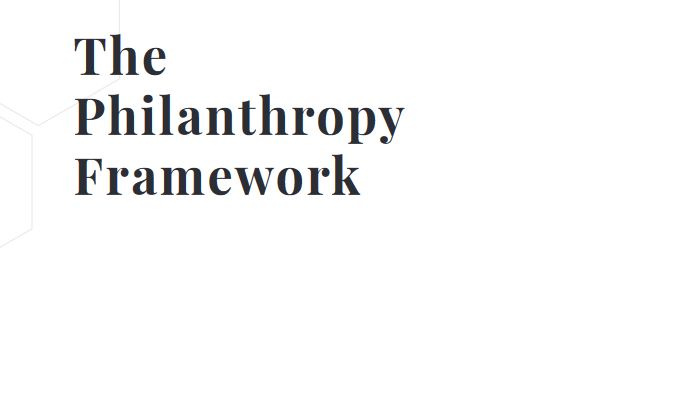The Philanthropy Framework
Across the world, philanthropy is undergoing a rapid transformation that offers both exciting opportunities and complex challenges. As a more unified global culture around giving and social investment emerges, new players, vehicles, strategies and approaches are creating commitment, enthusiasm and optimism.

Yet shifting attitudes toward philanthropy, intense debates about power and effectiveness and difficult operating environments require philanthropists and social investors to demonstrate their value to a wide range of stakeholders. And, as many philanthropies broaden their activities from grantmaking to impact investing, knowledge-building, advocacy and coalition-building, they face the need to change how their organizations assess and allocate non-financial resources.
With so much in flux, emerging donors and established funders are seeking new models not only for funding strategies and impact measures, but also for organizational design and management systems that will serve them well into the 21st century. Leaders are asking how philanthropies achieve impact as institutions, not just as sources of funding. In response to this surge of interest, Rockefeller Philanthropy Advisors developed The Philanthropy Framework, a tool to give an emerging or established philanthropy (whether in the form of a foundation, trust, funder collaborative, LLC, donor-advised fund or direct giving) a structure to align resources for maximum impact.
The Framework is comprised of three core elements:
- Charter, the organization’s scope, form of governance and decision-making protocol.
- Social compact, its implicit or explicit agreement with society about the value it will create.
- Operating model, the approach to the resources, structures and systems needed to implement strategy.
